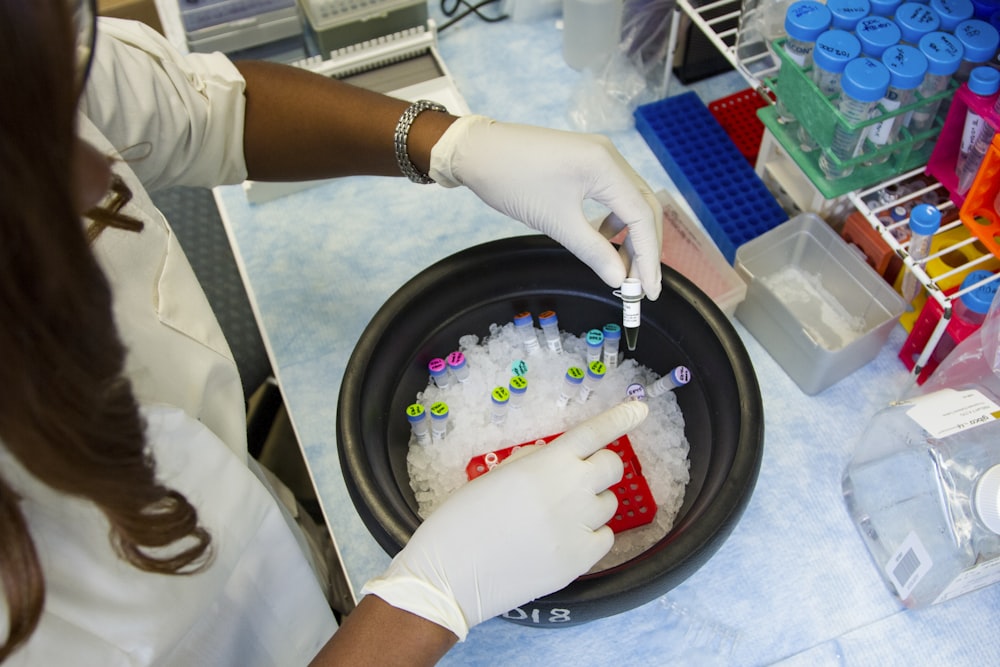Week In Review: WHO Close To Approving Global Use For Two China COVID-19 Vaccines
Image Source: Unsplash
COVID-19 Pandemic
The World Health Organization approved Sinopharm's COVID-19 vaccine for emergency use, which will give poorer nations access to a vaccine against the global pandemic (see story). The inactivated vaccine was developed by the Beijing Institute of Biological Products and licensed to Sinopharm (SHTDF).
It is approved for use in China and several other nations. In clinical trials, it was effective in 79% of the people who received it, though Sinopharm has not released a full data set from its trials. Next week, the WHO will review a second China COVID-19 vaccine, this one from Sinovac (SVA).
Beijing Sinovac's inactivated COVID-19 (Vero Cell) vaccine has started to see a rolling review in Europe (see story). CoronaVac is the first China-developed COVID-19 vaccine under consideration in Europe, joining vaccines from CureVac (CVAC), Novavax (NVAX), and a Russian vaccine, Sputnik V.
Sinovac has conducted large-scale trials in Brazil and other countries, though the efficacy rates varied from 50% to 91%. The low number was from Brazil and may reflect the difficulty of fighting Brazil's variant of the SARS-CoV-2 infection.
Deals and Financings
- Shanghai Hope Medicine closed a $56 million Series B round led by Qiming Venture Partners and Grand Flight Investment (see story). HopeMed is a global novel biopharma with R&D bases in Nanjing, Shanghai, and Beijing, It plans to develop products from internal R&D and in-licensings. The company was founded by Professor Rui-Ping Xiao, the dean of the College of Future Technology of Peking University, and an associate editor of the New England Journal of Medicine. HopeMed focuses on three areas: women's health, endocrine, and cardiovascular diseases.
- Beijing WeMed Medical completed a $46 million Series D financing to support its digital angiography products (see story). The company makes interventional diagnosis and treatment devices. WeMed offers products that include a digital subtraction angiography (DSA) system, a mobile angiography system, surgical C-arms, and novel R&D for interventional surgical robots. The company says its DSA products are China equivalents to machines that are already available from international device makers, but its robot products offer novel technology. The Series D round was led by Lake Bleu Capital.
- Shineco (TYHT), a China herbal medicine company, announced plans to acquire a 51% stake in Taiwan's Mayah Biological Holdings (see story). Mayah describes itself as a biotech that focuses on novel chemical and biomedicine products in pre-clinical and clinical stages. Its lead product has completed a Phase II trial, with a second cancer therapy ready to start a Phase II trial, and three other cancer drugs about to enter clinical development. At the moment, the two companies are doing their due diligence, with no guarantee that an actual transaction will take place.
Trials and Approvals
- BeiGene (BGNE), a Beijing biotech, announced China granted conditional approval for its PARP inhibitor, the company's third China approval (see story). Pamiparib was approved as a third-line treatment for recurrent advanced ovarian, fallopian tube, or primary peritoneal cancer with germline BRCA mutations. BeiGene said pamiparib is currently being tested in multiple global trials, including seven China trials for solid tumor malignancies. BeiGene plans a China launch for the PARP inhibitor this month.
- Newsoara, a Shanghai in-licensing company, said its lead drug candidate completed a successful China Phase II trial in gastrointestinal surgery patients (see story). LB1148 lowered the time to return of bowel function following elective bowel resection, though the company did not provide specific data. The candidate is an oral broad-spectrum serine protease inhibitor designed to neutralize digestive proteases released from the gut during surgery. Newsoara in-licensed greater China rights to LB1148 from Palisade Bio of Carlsbad, CA.
- Galmed Pharma (GLMD), an Israeli biopharma, was approved to add a China arm to its global Phase III trial of Aramchol in patients with NASH and fibrosis. Aramchol is a novel fatty acid bile acid conjugate that targets SCD1 to modulate hepatic lipid metabolism. In animal models, it down regulated steatosis, inflammation, and fibrosis. Galmed develops novel products to treat liver, metabolic, and inflammatory diseases.
- Ascletis Pharma of Hangzhou reported positive Phase IIa trial results from its in-licensed PD-L1 in patients with chronic hepatitis B (see story). ASC22 (envafolimab) is a first-in-class, subcutaneously administered PD-L1 antibody. The Phase IIa trial administered a single dose at three levels to three patients at each level. Eight of the nine patients responded, and one patient in the high-dose cohort had a maximum reduction in HBsAg, the efficacy endpoint. In 2019, Ascletis in-licensed China rights to ASC22 from Suzhou Alphamab for viral indications.
- Beijing's Jacobio Pharma announced US approval to start trials of its KRAS G12C inhibitor in patients with advanced solid tumors (see story). The company plans to enroll patients with non-small cell lung cancer (NSCLC), colorectal cancer (CRC), and other advanced solid tumors that have the KRAS G12C mutation. So far, no KRAS G12C inhibitors have been approved globally. Jacobio will start enrolling patients for both trials in the second half of 2021.
- Shanghai's Asieris Pharma and Beijing's BeiGene plan to test a combination of Asieris' MetAP2 inhibitor and BeiGene's PD-L1 inhibitor in bladder cancer patients (see story). Asieris' APL-1202 is an oral drug that has anti-angiogenic, anti-tumor effects and also modulates the tumor immune microenvironment. BeiGene's tislelizumab binds PD-1 to restore an immune response for cancer. The Phase I/II trial will test the safety and efficacy of the combination in patients with muscle invasive bladder cancer (MIBC). Asieris plans to submit INDs in China and the US.
Disclosure: None




